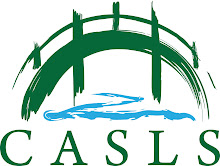From http://www.neh.gov/divisions/education/other-opportunities/roots-the-arab-spring
National Endowment for the Humanities summer institute for school teachers: Roots of the Arab Spring.
Dates: July 15—August 2
Location: Davis, CA
Description: This new institute brings together teachers and scholars to investigate the historical, social, economic, and cultural dimensions of the Arab Spring, the revolutionary wave of protests and uprisings sweeping through the Arab world since 2010. Beginning with the Napoleonic invasion of Egypt, participants explore the subsequent French, British, and Italian colonial periods in Algeria, Tunisia, Morocco, Syria, Egypt, and Libya. They then investigate how the expansion of European colonialism and global capitalism in the region in the late nineteenth and early twentieth centuries fostered new ideas about modernity, political discourse, and class structures. After this, they investigate the rise of anti-colonial nationalist movements in the period 1919-1939, followed by decolonization during the Cold War era. Subsequent discussion focuses in large part on post-colonial movements, neoliberalism, and challenges to political establishments by workers, youth, women, Islamists, and others culminating in the recent popular uprisings in Egypt, Tunisia, and Syria. Project director and Middle Eastern historian Omnia El Shakry is assisted by staff members (the History Project Team) and academic colleagues at the University of California, Davis, including historian Susan Gibson Miller, anthropologist Suad Joseph, religious studies scholars Flagg Miller and Keith Watenpaugh, and comparative literature professor Noha Radwan. Before the institute, participants read two textbooks, William Cleveland, A History of the Modern Middle East, and Kenneth Perkins's A History of Modern Tunisia, and selections from Akram Khater, ed., Sources in the History of the Modern Middle East. During the institute, they discuss primary source documents, view films, and build a collective resource pool, an annotated bibliography, and a discussion forum using the interactive blogging platform Tumblr. Each participant also creates a lesson or unit plan to submit to colleagues for peer review. Final projects are posted on the Tumblr site and on a university-hosted website.
Full-time teachers in American K-12 schools, whether public, charter, independent, or religiously affiliated, as well as home-schooling parents, are eligible to apply to NEH Summer Seminars and Institutes. Americans teaching abroad are also eligible if a majority of the students they teach are American citizens. Librarians and school administrators may also be eligible.
For more details go to http://www.neh.gov/divisions/education/other-opportunities/roots-the-arab-spring
December 19, 2012
Subscribe to:
Post Comments (Atom)





No comments:
Post a Comment
Note: Only a member of this blog may post a comment.